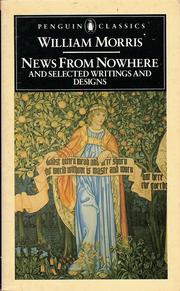I enjoyed Giovanni’s
Room so much. James Baldwin was one
of those writers who was so far ahead of his time that it’s almost unbelievable
that he ever got anything published.
Following up on Go Tell It On The
Mountain’s depiction of race, he wrote this; a book that sympathetically
portrays a male homosexual relationship.
It was published in 1956; a time when it was still illegal to be gay in
American (and a hell of a lot of other countries). It’s staggering. There’s more to it than just the achievement
of not being super homophobic, though, this is a bloody good story.
Baldwin’s novel tells the story of David, an American man in
Paris. When his fiancée Hella leaves for
the summer he begins an affair with Giovanni, an Italian barman in the club
David frequents. Naturally, this goes
badly once Hella returns. It’s such a
simple story but it’s incredibly well told.
Post-affair Giovanni’s life falls apart and David is pretty unhappy too;
the story is told as a flashback on the morning of Giovanni’s execution and,
yet, the book doesn’t dwell on the misery.
It’s there, but it comes in every so often as a wistful melancholia
rather than agony. David no longer loves
Giovanni at the time of the telling and it gives distance to the tragedy of the
piece.
The fact that both David and Giovanni are utter shits at
times also helps. David cheats on Hella
more than once, always with men and yet still remains judgemental of the men he
meets and sleeps with. Giovanni just
straight up belittles, “these absurd women running around today, full of ideas
and nonsense, and thinking themselves to be equal to men… they need to be
beaten half to death so that they can find out who rules the world.” Despite this, I do like Giovanni. He loves David who is too selfish and scared
to love him back and this ruins his life.
He ultimately gives Giovanni up so that he can access his father’s money
and then decides that Giovanni is pathetic when his heart is broken while he
can still return to Hella.
This book was written in 1956 and it could have been written
today. I can’t get over how ahead of its
time it is. I could tell you a thousand
reasons why I was so blown away by Baldwin’s attitude to homosexuality, but it
all can come down to one quote. Jacques
(a friend of David’s) is explaining his sex life, “You think… that my life is shameful
because my encounters are. And they
are. But you should ask yourself why they are… Because there is no
affection in them, and no joy… Touch but no contact.” Sex is not shameful because it is with
another man, but because it is loveless and to say that in the 1950s is
amazing. I just wish that there were
more authors like Baldwin around now, tackling the taboos that shouldn’t be in
place.
Now I’m reading The Lost Honour of Kathrina Blum by Heinrich
Böll.


